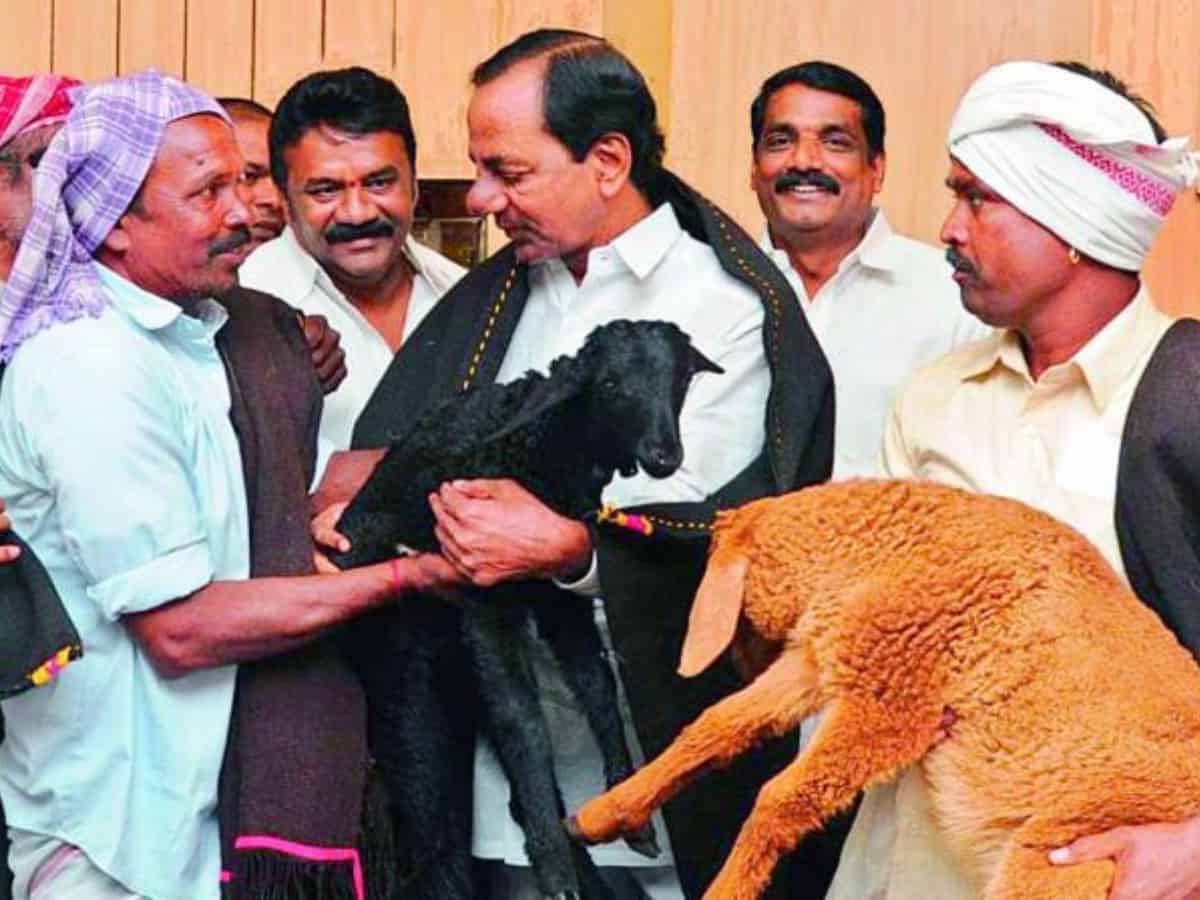
Hyderabad: The Comptroller and Auditor General (CAG) has uncovered a significant fraud in the Telangana government’s sheep-rearing scheme.
Its investigation revealed serious deficiencies, including the use of ambulances, two-wheelers, and other vehicles for transporting sheep, as well as the circulation of fake invoices and the duplication of ear tags.
The fraud amounted to a staggering Rs 253.93 crore, raising questions about the integrity of the scheme’s implementation and the governance mechanisms in place.
‘126 sheep transported on a two-wheeler’
In one case, the CAG report found that an ambulance was used to transport 84 sheep in a single trip in Khammam district, while scamsters quoted in records that they transported 126 sheep in a single trip in Sangareddy district on a two-wheeler.
In another instance, they used a cab to transport 168 sheep in a single trip in Mahbubnagar district, while an auto was used in Nalgonda district to ferry 126 sheep.
“The suspected fraud where checks conducted in seven districts is of Rs 253 crore. These included payments made on manipulated transport invoices for the transportation of sheep and invoices containing fake/passenger/non-goods vehicles cases where more than two sheep units were shown as transported in small goods vehicles and tractors and more than six sheep units were shown as transported in heavy goods vehicles assigning duplicate ear tags to multiple sheep,” the report read.
ACB probe
The Telangana Anti-Corruption Bureau (ACB) launched an investigation in January into the sheep distribution scheme after allegations surfaced that some beneficiaries were deceived and that officials were involved in the scam.
Gachibowli police registered a case in December after some people filed complaints against the officials and middlemen, including two assistant directors of the animal husbandry department and two contractors.
They were accused of being involved in a scam of Rs 2.1 crore in the sheep distribution scheme.
The accused were involved in buying sheep from Andhra Pradesh and distributing it to the beneficiaries in Telangana and have allegedly cheated sheep vendors of Yacharam in Andhra Pradesh after receiving payment for their sale.
The accused had noted down the bank account details of the sellers but they made wrong entries and diverted Rs 2.1 crore to false accounts, police investigation found.
The Gachibowli police registered a cheating case under sections 406, 409, and 420 of IPC against the two contractors and the assistant directors Ravikumar and Keshav Sai and others.
Considering the magnitude of the scam the state government ordered the ACB to probe the case.
Scheme launched in 2017
The Telangana State Sheep and Goat Development Cooperative Federation Limited (TSSFGDCFL), under the animal husbandry and fisheries departments, has been implementing the scheme to provide sustainable livelihood to traditional shepherd families.
It was launched by the previous BRS government in April 2017.
Under the scheme, the government provides 75 percent of the cost of a sheep, and the remaining 25 percent is borne by the beneficiary.
The scheme aims to strengthen the rural economy through the empowerment of Golla and Kurma communities in their traditional occupations.
The sheep breeds chosen are Nellore Brown (Dora), Nellore Jodipi (white with black spots on the face), Deccani, and Madras Red.
By March 2018, the government said that it had distributed 1 crore 28 lakh sheep to over two lakh beneficiaries.
The sheep are purchased from neighbouring states (Andhra Pradesh, Karnataka, Maharashtra and Tamil Nadu), in order to avoid recycling and to increase the net sheep population in the state.
Under the scheme, a total of four lakh sheep units were targeted to be given in two years (2017-18 and 2018-19) across the state at a total cost of Rs 5000 crore.
The scheme was to be funded through loans of Rs 3000 crore and grant of Rs 1000 crore given to the TSSGDCFL by the National Cooperative Development Corporation (NCDC) and the remaining Rs 1,000 crore from beneficiary contributions.
As per the information furnished by the TSSGDCFL, as of December 2021, a total of 3.88 lakh
sheep units were supplied to an equal number of beneficiaries across the state with an expenditure of Rs 3,385.32 crore incurred towards subsidy.
As per the scheme guidelines issued (April 2017) by the government, District and Mandal Level Committees were formed to implement the scheme.
The Mandal Level Committee is responsible for the identification of beneficiaries by conducting Gram Sabhas in villages.
The District Level Committee (DLC) headed by the District Collector is responsible for approval of beneficiaries and sanction of sheep units to them. After approval of beneficiaries, the selected beneficiaries deposit the beneficiary contribution to the DLC.
The TSSGDCFL releases government subsidy funds to the districts.

